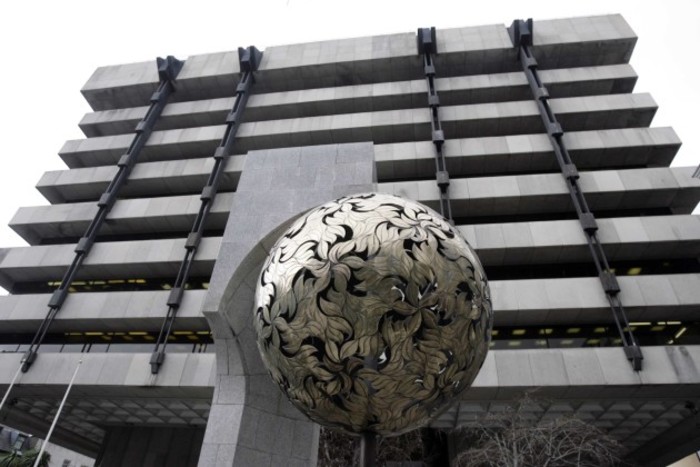A Central Bank database conceived after Anglo's demise will finally be ready in 2018
The establishment of a central credit register was one the troika’s demands during Ireland’s bailout talks.
A CENTRAL CREDIT database that will allow financial institutions to access shared information about people’s credit history will finally be running by the start of 2018 – five years after it was first due to go live.
The aim of the credit register is to provide financial institutions like banks with more information about the credit history of a borrower, such as if they have large amounts of unpaid debt.
The idea behind the initiative is to reduce the chance of a return to the lending practises that were rampant before the recession, when some banks granted loans while doing minimal background checks on the borrowers.
The establishment of the register was one of the demands the troika of the European Commission, European Central Bank and International Monetary Fund made during Ireland’s post-financial crisis bailout.
One of the first deadlines for the register would have seen it operational as early as 2013. Meanwhile, a consultation document published last year said it was then expected that data “will be received and processed in the CCR (Central Credit Register) from mid-2016 onwards”.

2018 start
The Central Bank, which is responsible for the establishment of the register, has now confirmed to Fora that financial institutions will be able to get useful data from the register at the start of 2018.
“Data will be submitted to the register between June and December 2017. Subject to the quality of that data being of satisfactory quality, enquiries by lenders will be 1 January 2018,” it said.
“During the intervening period, technical and operational changes will be implemented by lenders and data quality assurance testing will be carried out. Approximately 500 lenders will be registered with the CCR during this time.”
 The Central Bank building on Dame Street
The Central Bank building on Dame Street
It added: “The period of time between 30 June 2017 and 31 December 2017 is to ensure that data submitted is of sufficient quality to allow the CCR match personal and credit information, and to be able to produce credit reports.”
It said that, when fully implemented, the register will introduce credit reporting requirements on finance providers including banks, credit unions and money lenders.
“Loans of €500 or more must be reported to the CCR. Lenders must check the CCR when considering credit applications for €2,000 or more,” it said.
Delay
Several groups, such as the Law Reform Commission, recommended as far back as 2009 that a central credit register should be established. The legislation that would allow for the establishment of the register was enacted towards the end of 2013.
Fianna Fail finance spokesman Michael McGrath has pushed for the introduction of a register for year and previously said that the lack of one “was a significant factor in disastrous lending decisions by Ireland’s banks and financial institutions in respect of individuals and companies”.
 Michael McGrath
Michael McGrath
CRIF Ireland Limited, a subsidiary of an Italian specialist in credit information systems, has been appointed by the Central Bank to build and operate the register.
Asked why the register had taken so long to establish, a spokeswoman for the Central Bank said that the organisation has carried out “substantial work to research and develop a robust CCR”.
Amid other measures, she said that this included “a procurement process, continuously engagement with representative industry groups, design of the CCR solution and processes in conjunction with CRIF Ireland and consultation with the Data Protection Commissioner”.






